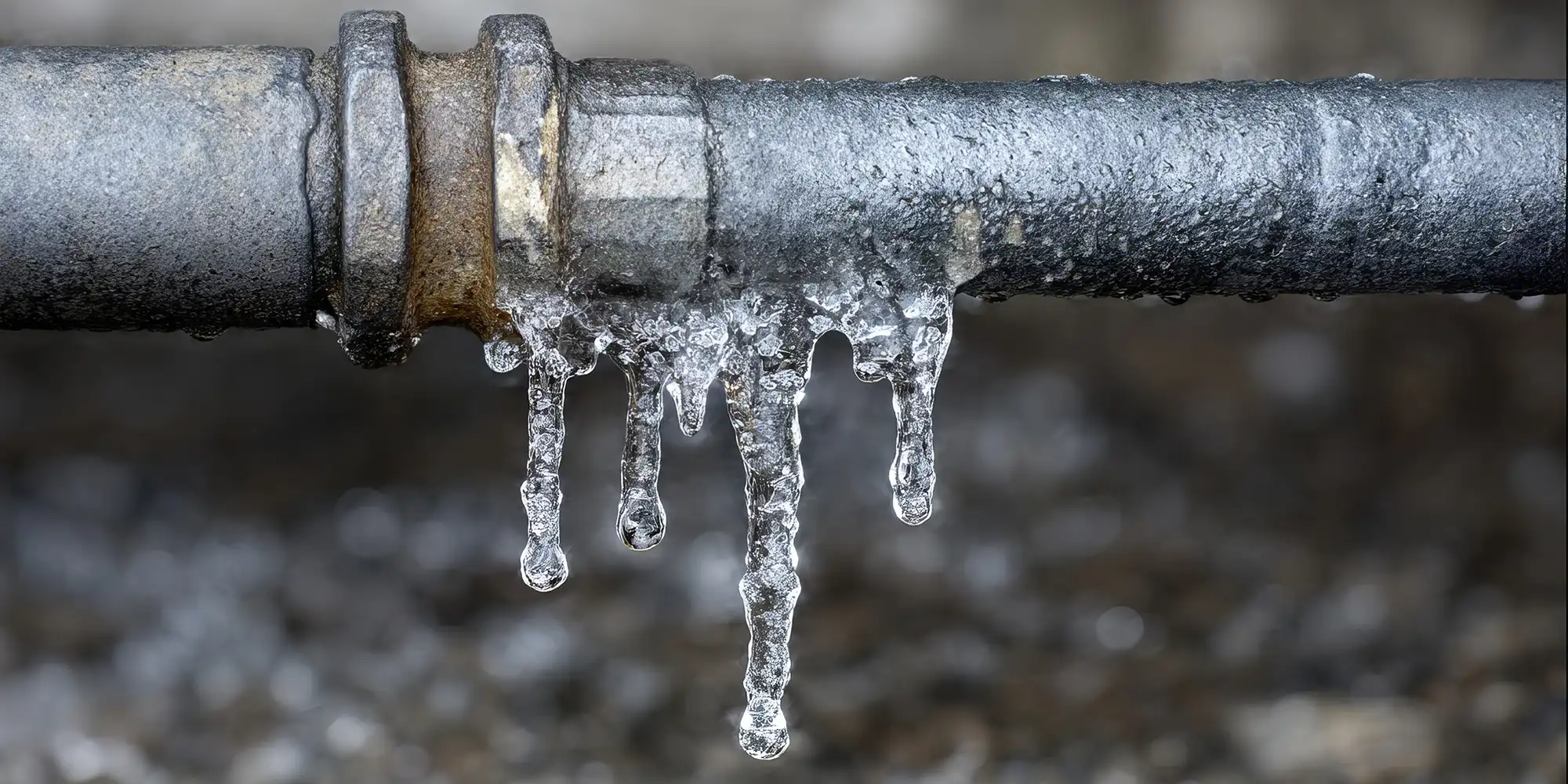A landscape covered with fresh snow can be gorgeous, and nothing's cozier than a warm home during a snowstorm. But winter weather can also be dangerous.
If you’re a renter and disaster strikes, all you need to do is call your landlord. But if you’re a homeowner and run into winter weather emergencies, it can be hard to know what to do. Learn about two of the most common cold weather problems and find out the steps you need to take if they happen to you and your home.
Frozen pipes
Water expands by about 9% when it freezes, and that means winter weather can wreak havoc on your plumbing.
The main cause of frozen pipes is lack of adequate insulation. Pipes that freeze most often are in unheated crawl spaces or basements, near uninsulated exterior walls, or in sheds and garages.
Symptoms of a frozen pipe
If you turn a faucet handle all the way on but only see a trickle of water, you could have a frozen pipe. You may also notice strange smells if the pipe is completely blocked by ice.
Solutions to prevent pipes from bursting
Unless a pipe has already burst, you may be able to thaw it on your own. Start by leaving the faucet open. Then, add heat to the pipe itself. Towels soaked in hot water, portable space heaters, hair dryers, or even electric heating pads might work.
What to do if a pipe bursts
If your frozen pipe has burst or you are unable to completely thaw your frozen pipe, turn off the water supply to the house. Then, call your insurance company and a professional plumber. If the burst pipe has caused major water damage, you may also need a water damage restoration company.
Ice dams
Ice dams occur when thick ridges of solid ice build up along the eaves of the roof. They can damage shingles and tear off gutters, but that’s not the worst of it. They can also cause water to pool on the roof and leak inside. It can mean warped floors, soggy ceilings, peeling paint, and even structural damage.
Symptoms of an ice dam
Icicles on your gutters are often a sign of ice dams, but you may just have clogged gutters. If there’s unmelted snow and ice at the bottom of the roof but none on top, however, you probably have an ice dam. Inside the house, look for soft walls, water spots, drips, or mold and mildew.
Ice dam solutions
It may be possible to melt ice dams yourself, but be very cautious. First, turn down the heat inside your house so water trapped under the dam refreezes. You can also point a box fan at the underside of the roof so cool air blows at the leak. To melt the dam itself, try filling a leg of discarded panty hose with calcium chloride ice melter and hanging it on the roof. You can also try pulling off the snow with a long-handled rake (while you’re standing on the ground), but don’t climb on the roof, and don’t use ice picks or shovels (as these can do even more damage to your roof).
What to do if ice dams cause a leak
If you have a major leak on your hands, you may need to call the experts. Call an emergency cleanup company (some even specialize in ice dam cleanup) and call your home insurer. If you don't know where to start, there's a good chance your real estate agent has local connections.
Prevention
The best time to solve a winter homeowner emergency is before it starts. After your damage is repaired, talk to the professionals you’ve called about long-term fixes. For frozen pipes, you may need extensive pipe insulation or might get away with just leaving a tap dripping during the coldest months. For ice dams, you may need to fix air leaks, insulate the attic, install roof vents, or even install heat cables on the roof itself—or you may just need to clean your gutters better in the fall.
Contact your loan officer
Your friendly loan officer with Castle & Cooke Mortgage can help you finance the home of your dreams, and they may also know a thing or two about homeownership in winter weather. Whether you’re interested in a cash out refinance or exploring options for a big move, give them a call today!
